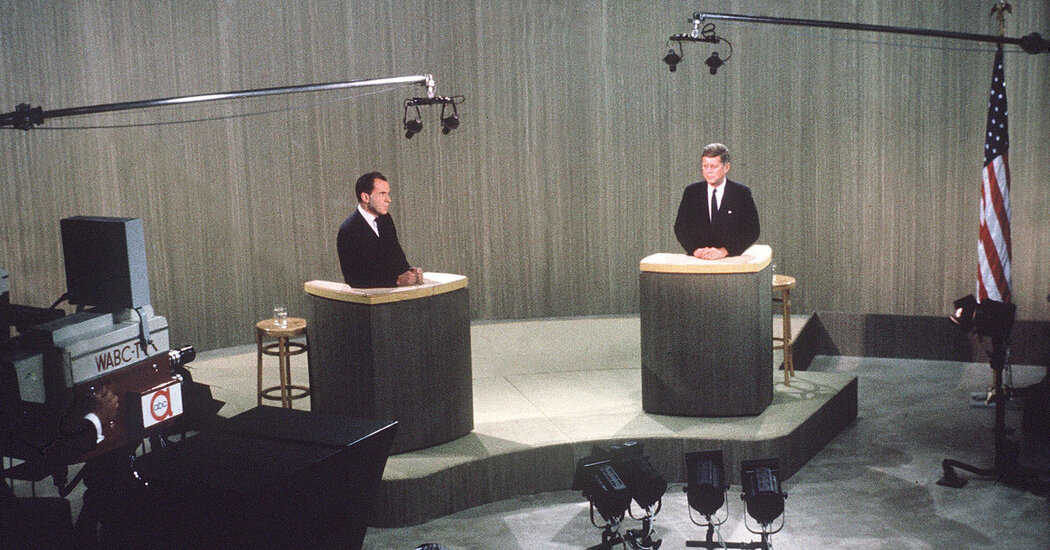President Biden and former President Donald J. Trump will turn back the clock when they square off on Thursday in at least one way: This will be the first general election presidential debate without an in-person audience in more than six decades.
The last time was in 1960, when Richard M. Nixon, the Republican vice president, and John F. Kennedy, the junior Democratic senator from Massachusetts, participated in the first televised debates between presidential candidates.
Their first encounter is remembered for the stark contrast between their appearances: Kennedy looked relaxed and tanned, while Nixon, who decided to forgo makeup, looked ashen and unshaven.
The telegenic Kennedy went on to win the election after facing Nixon three more times, including in an ABC debate that used a split screen so that the rivals could appear remotely from New York and Los Angeles.
Sixteen years then passed without a presidential debate, as Lyndon B. Johnson and Nixon refused to participate in subsequent election cycles. When debates resumed in 1976, they did so with in-person audiences. That was also the first time that a sitting president, Gerald R. Ford, participated in a televised debate.
His first debate with Jimmy Carter, the Democratic challenger and former Georgia governor, took place in front of a live audience at the Walnut Street Theater in Philadelphia. Carter went on to defeat Ford.
Every presidential debate since then has included an in-person audience, even during the coronavirus pandemic in 2020, when Mr. Biden and Mr. Trump faced each other twice. The rivals were supposed to debate three times that year, but the second one was canceled after Trump would not agree to a remote format proposed by the Commission on Presidential Debates for safety reasons.
This year, Mr. Biden’s team demanded no in-person audience, seeking to avoid any cheering or booing that could derail the conversation. Mr. Trump, who feeds off the reactions of his supporters, indicated that he wanted an audience, and he accused Mr. Biden of being “afraid of crowds.” Still, Mr. Trump agreed to CNN’s terms, which called for no audience.
Some candidates have benefited demonstrably from having an in-person audience. Bill Clinton, for instance, used a town hall debate in 1992 against President George H.W. Bush and the independent Ross Perot to his advantage in winning the presidency.
In May, Mr. Trump’s supporters cheered him on during a town hall event hosted by CNN. The network was criticized over the event, partly because of the friendly setting.
Peter Baker contributed reporting.
